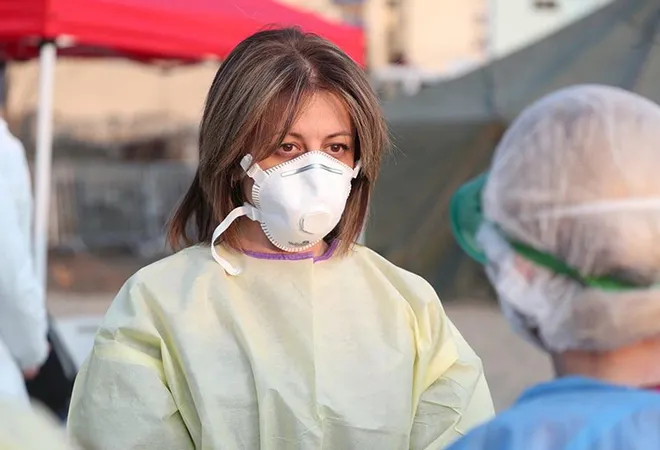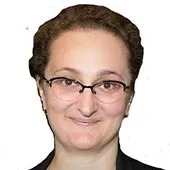
On 30 June 2020 the Council of EU
adopted a recommendation to gradual lift the temporary restrictions for 15 non-EU countries on non-essential travel into the EU, including Georgia. Thereafter, on 19 August 2020 the WHO Director-General lauded Georgia’s COVID-19 situation and further
mentioned that the country’s fights against COVID-19 is an ideal model. noted that the country is a model for the fight against COVID-19.
Indeed, Georgian government set an example of the effective, professional, responsible approach in the fight against COVID-19; a fight fought by all countries across the globe. Georgia’s COVID-19 response involved taking into account available information, including testing, surveillance, contact tracing, containment, treatment and reporting was prompt, accurate, comprehensive and timely.
It is important to note that, unlike other countries, including the neighboring countries, the threat posed by the pandemic was known to the government a month before the first case was recorded. Post which, the government adopted the economically disadvantageous and painful decision of imposing a nationwide lockdown. Despite the low spread of the infection, strict rules were enforced and the restrictions were lifted gradually with utmost care.
First Governmental order relating to COVID-19 was
issued on 28/01/2020 and the Emergency Response Plan was adopted – much earlier than almost in all European countries.
In February schools and universities were closed. Fortunately, normally schools and universities open from 1
st September 2020 and kindergartens – from 1
st October 2020. Despite slightly increased number of the new cases registered during the past few days, the Prime Minister announced that the academic year would start according to the schedule and theatres and cinemas would be allowed to open in September-October 2020. The restriction on gathering of more than 10 persons was lifted back in June, and restaurants, hotels and guesthouses, who have managed to pass sanitary control, are open. However, large weddings and other public gatherings in closed spaces are restricted.
The Government launched an aggressive informational campaign on the importance of the personal hygiene and social distancing with the slogan “
Stay Home”. Face masks were made mandatory in every public building, excluding restaurants. Considering the number of cases, Tbilisi mayor called for the stricter control of the process.
The country still remains closed for foreigners except some special cases. Chartered flights are functioning. Further, only Air France and Lufthansa conduct rare regular flights starting from 1
st August 2020.
An Emergency situation was enforced from 21
st March to 21
st of April 2020 with additional night curfew from 31
st March to 20
th April 2020. Fines were introduced for people breaching the emergency rules and night curfew - 3000 Gel for the individuals and 15000 Gel for the legal persons.
Elderly people (aged 70+) were restricted to go out. The local municipalities and trained volunteers assisted them to supply groceries and essentials.
Georgia is a religious country with majority of population being orthodox Christians. It was very important for the government to strike a balance between the recommendation of three leading scientists, who played crucial role in the successful fight with COVID-19 (known as
'three musketeers' by the BBC) who urged people to stay home during the Orthodox Easter service, and the Georgian Orthodox Church - the most influential institution in the country, who went ahead with ceremonies and refused to break centuries-old rules for holy communion. The balance was found during Orthodox Easter - the authorities banned private transport (public transport was already suspended) and closed cemeteries but the churches remained open and people were allowed to attend the services, subject to keeping distance of 1.5 – 2 m and wearing the face masks.
It is worth noting that the population in general obeyed the restrictions and followed the rules, even more, they supported the Government in adopting such strict rules despite the negative economic impact. Joint and coordinated between the Government and society is the result of the low spread in cases - As for 31
st August 2020 the number of confirmed cases is 1478, recovered 1240 patients and 19 fatal outcomes for the population of 3.7 million. Georgian authorities were successful in repatriation of Georgians from foreign countries during the closed borders. The process still goes on.
It is important to further note that the activity of the Georgian Maritime Transport Agency, which
managed to repatriate more than 2000 Georgian seafarers since March 2020. Factually, rotation of Georgian seafarers was not suspended during the pandemic.
The last registered cases and, consequently, clusters of COVID-19 were associated with the popular touristic destinations but again, prompt and effective measures helped to stop the further spread of the virus. On the other hand, these measures, which include the lockdown of several villages in the high- mountain region, threatened the schedules for the agricultural works and caused serious problems to the local population. It is crucial to keep Georgian resorts COVID-19-free – in the absence of international tourists the main accents are switched to the encouragement and development of the internal tourism to help survive this important sector of Georgian economy.
Shortly after declaring Emergency, Georgian national currency Lari
dropped significantly towards USD and Euro and, though relatively stabilized, still is on its historical low. This has led to serious problems - Georgia heavily depends on import, including vital food products, and currency rate significantly influences the prices. This has further put a burden on the population in times of crisis.
To minimize the negative economic impact, the Government
announced the infusion of 2 billion Gel in the economy and for social needs. There were special packages and programs of the financial aid for the population and businesses, which included covering the expenses for public utilities for certain categories of the population, social payments to the workers who lost the income due to COVID-19, financial aid to businesses. Of course, this was not 100% compensation but an attempt to mitigate the situation more or less for the whole country. However, the general understanding is that without foreign financial help it will be very difficult to survive economic downturn.
The Emergency rules gradually are revised in order to allow more and more businesses to function. The interested companies shall implement strict sanitary measures/equipment and apply for the special Governmental permit. Depending on the dynamics of the epidemics, the list may be reconsidered.
However, despite the effective preventive measures and control over the spread of the virus, COVID-19 is not defeated in Georgia. In July-August there are daily new cases and although most of them are imported ones, local clusters also exist.
Taking into account the severe economic and social condition of the majority of the population, in addition to 2 billion GEL already spent for minimization of the impact of the pandemic, Government also
launched the new projects – every Georgian child of age till 17 years will receive the state aid in amount of 200 Gel. The Solidarity Fund mainly finances the state aid, where the major donor is the family of the chairman of Georgian Dream - the ruling party and also the richest person in Georgia – Bidzina Ivanishvili. There were various attempts to tie the social aid to vulnerable population to politics but till now without any visible results.
However, notwithstanding stricter rules the Government faced economic losses, which affect the majority of the population, the ratings of the ruling party and personally of the Prime-Minister Mr. George Gakharia, who proved to be effective decision-maker, are only increasing. Since 2012, when Georgian Dream won parliamentary elections for the first time, they have never approached any elections with such a strong support of the electorate. Therefore, GD has good chances to win for the 3
rd time in a row, which will be a record for the political party in the modern history of the country.
The views expressed above belong to the author(s). ORF research and analyses now available on Telegram! Click here to access our curated content — blogs, longforms and interviews.



 On 30 June 2020 the Council of EU
On 30 June 2020 the Council of EU  PREV
PREV


